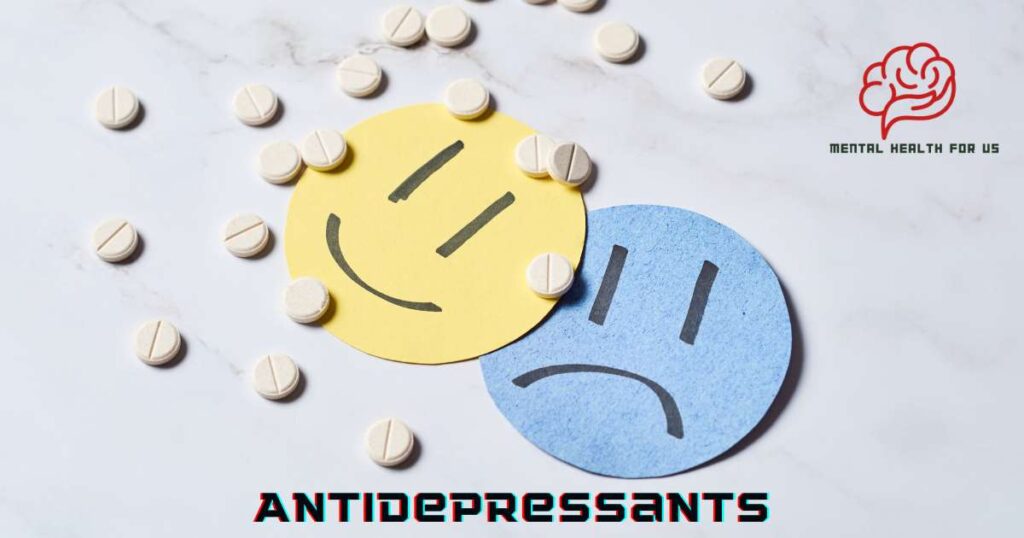Introduction
Antidepressants are used to treat depressive disorders, bipolar depression, anxiety disorders, etc. These drugs affect serotonin, a brain neurotransmitter that regulates mood. Antidepressants are available in different forms, such as tricyclic antidepressants and selective serotonin reuptake inhibitors (SSRIs). They can improve mood, quality of life, and depressive symptoms, making them an important depression treatment. Most psychiatrists prescribe them in the evening. In some cases, these drugs cause somnolence. Due to this and some other factors, it becomes preferable to shift to the evening dose. This shifting can cause temporary disturbance. In this blog, we will cover different aspects about, “how to switch antidepressants from morning to night?”
Why switch antidepressants from morning to night?
Following are the factors that require taking antidepressants preferably at night
- Daytime Somnolence: Most antidepressants are not sedative. However, they can cause daytime somnolence.
- Treatment Adherence: Treatment adherence is improved if we take these medicines at night. This is because, in the morning time, we are in a lot of hurry.
- Sedative antidepressants can improve sleep at night
How to switch antidepressants from morning to night?
Switching antidepressants from morning to night requires planning. Consult your doctor before changing your medication. There are two methods
Antidepressants that have a long half-life.
These medicines tend to stay in our body for longer periods. One example is fluoxetine. Half-life is almost 9 days. Shifting from the morning dose to the evening dose is easy. You can easily skip the morning dose and start taking the evening dose. No significant withdrawal will appear.
Antidepressants that have short half-life
These medicines have a short half-life. They tend to stay in our body for a shorter period. If we skip one dose, we can experience withdrawals. So, the first step is to divide the does in the morning and evening. For example, take half the dose in the morning and half in the evening. After 1 week skip the morning dose and take all doses in the evening.
–

–
Consult a Medical Professional for Advice on the Treatment Plan
Medical advice is needed before switching antidepressants from morning to night. Before changing your treatment plan, consult your doctor.
Individual needs determine antidepressant prescriptions and timing. Your doctor knows your medical history, symptoms, and side effects. They can best advise you on switching from morning to night doses.
Consult a doctor to ensure the change is safe and effective. They can assess risks and interactions with other medications and advise you. They will consider your sleep cycle, daily routine, medical conditions, and antidepressant medication and its effects on sleep.
Involve your doctor in decision-making to improve treatment outcomes and reduce side effects. Their clinical experience and knowledge will help tailor the treatment plan to your needs and provide the best support for managing depressive symptoms or other mental health conditions.
Remember, consulting a doctor ensures your treatment plan is safe and effective, improving your quality of life and well-being.
Potential Side Effects of Switching from Morning to Night
Switching from morning to evening antidepressants may cause side effects. Be aware of these side effects and consult your doctor before changing your medication regimen. Changing your antidepressant dosage timing can cause sleep problems like insomnia, vivid dreams, and restless legs syndrome. Additionally, some people may experience daytime energy or mood changes. Note that these side effects may vary by antidepressant and by patient response. Your doctor can help you manage side effects and adjust your treatment plan.
Common Side Effects
Before taking antidepressants, be aware of common side effects. These side effects vary by person, but they should be noted to monitor medication response.
Lower alcohol tolerance is a common antidepressant side effect. This means you may become more intoxicated or feel alcohol effects stronger after drinking less. Drink responsibly and know how alcohol affects you.
Increased bleeding risk is another side effect. Antidepressants thin blood, making bleeding easier. Contact your doctor if you experience unusual bleeding or bruising.
Some people can develop hyponatremia from antidepressants lowering sodium levels. Nausea, fatigue, headache, confusion, and seizures are possible. Monitor your sodium levels and report any concerns to your doctor.
Some general side effects may occur in addition to these. Nausea, sexual issues, fatigue, insomnia, dry mouth, blurred vision, constipation, and dizziness are examples. If you have side effects, tell your doctor so they can adjust your medication or help you manage them. Different antidepressants have different side effect profiles. SSRIs are usually cardiac-safe drugs.
Remember that these side effects may vary in intensity and not everyone will experience them. Open communication with your doctor during antidepressant treatment is crucial for best results.
Conclusion
In conclusion, how to switch antidepressants from morning to night? This should be under your doctor’s supervision. To reduce side effects, the timing is gradually adjusted. Your doctor may suggest starting your medication later in the morning for a few days, then moving it to the early evening and finally before bedtime. You must monitor your mood and side effects during this transition. For a safe and effective medication timing change, follow your doctor’s instructions, which may vary by antidepressant.
FAQs
Can you take SSRI at night instead of morning?
SSRIs can be taken at night instead of in the morning, but only under medical supervision. SSRI medication can be timed to suit personal preferences or reduce side effects, but a consistent dosing schedule is necessary for efficacy. Discuss medication timing changes with your doctor to ensure they fit your treatment plan.
Which SSRI is best for depression?
Because SSRIs work differently in different people, there is no single best SSRI for depression. Symptoms, medical history, and side effects determine SSRI choice. Consult a doctor to assess your condition and prescribe the right SSRI. SSRIs like Zoloft, Prozac, and Lexapro are commonly prescribed for depression, but a doctor can help you choose.
How long is normal to be on antidepressants?
The duration of antidepressant use depends on the type and severity of depression, response to treatment, and medical advice. Antidepressants may be prescribed for months or years. Follow your doctor’s advice and ask about antidepressant treatment duration. Antidepressants should be discontinued gradually and under medical supervision to minimize withdrawal symptoms and improve depression management.
What is the best time to take an antidepressant?
The best time to take an antidepressant is immediately after the meal. This can be at night or morning. The sedating antidepressants are preferable after dinner.







